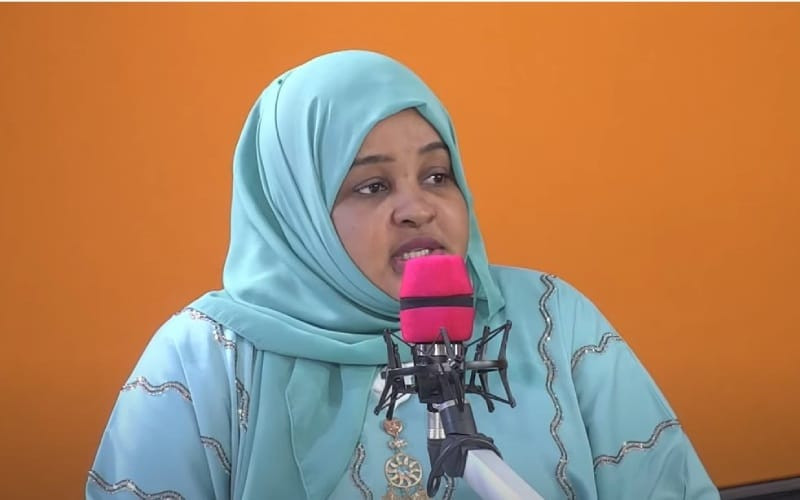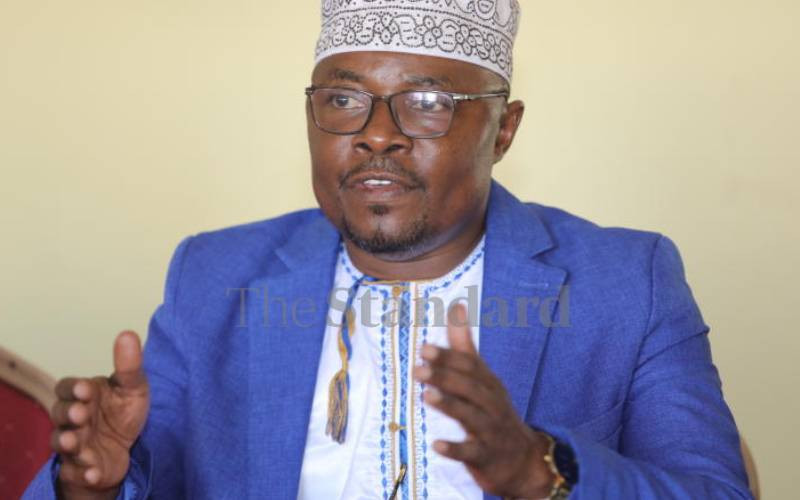Recently, I received a delegation from the Anti-Female Genital Mutilation (FGM) Board chaired by former Cabinet minister Lina Jebii Kilimo. Mrs Kilimo has the unenviable task of eradicating FGM, a long-held practice among some Kenyan communities.
The concern of the board is justified and the efforts being made commendable. Unfortunately, the elimination of FGM will require more than publicity and public participation efforts.
It is a battle of wills between those determined to keep it ingrained in the customs of communities and those keen to banish it for good. I choose to stand with the latter.
In truth, it is much easier to fight the practice in communities that practise FGM for cultural purposes, but very difficult when divine scriptures are quoted to justify it.
Among the Somali and the Borana, the practice has a more religious than cultural connotation. There is a mistaken belief that FGM is sanctioned by the Koran, but nothing is further from the truth.
There are no sources either within the Koran or Hadith (the prophetic tradition) where this is mentioned or recommended. That is why in order to successfully campaign against FGM in Muslim dominated counties, the involvement of religious leaders is needed.
But then the effort must start at home. Showing video footage of girls undergoing the blood-chilling cut is a start. Most parents, particularly fathers, have never seen what happens to their daughters. Those who adopted the not-in-my-backyard attitude after being exposed to the footage portrayed shock and dismay.
At last, some parents are appreciating the extent of pain and trauma the cut inflicts on their daughters. But more needs to be done.
There is a culture of silence when it comes to FGM in predominantly Muslim communities. No one has seen or noticed when girls have to face the ritual. I have never heard of a ceremony where the initiation is taking place. This is contrary to other Kenyan communities where FGM is a rite of passage and the event is celebrated with 'graduation' ceremonies.
The Prohibition of Female Genital Mutilation Act 2011 has been enacted into law to protect the girl-child and women from the dangers of this practice.
Though practised as a rite of passage, FGM has been found to be harmful to the health and well being of the victims. Many organisations including WHO, Unicef and UNFPA issued a joint statement in 1997 defining female genital mutilation as "all procedures involving partial or total removal of the external female genitalia or other injury to the female genital organs whether for cultural or other non-therapeutic reasons".
FGM, also known as female circumcision, is the ritual removal of some or all of the external female genitalia. It is typically carried out by a traditional circumciser using a razor blade or knife (with or without anesthesia).
The procedures differ among different ethnic groups. The most severe form (known as infibulation) involves the removal of the inner and outer labia and the closure of the vulva. In the worst-case scenario, the female organ is distorted, making it difficult to have sexual intercourse and childbirth.
The health effects depend on the procedure but can include recurrent infections, chronic pain, cysts, an inability to get pregnant, complications during childbirth and fatal bleeding.
Doctors also talk of FGM causing a high prevalence of infertility and inability to sustain a pregnancy among some women. There are no known health benefits. And the perception that FGM will help girls maintain their chastity remains a myth because there is no scientific study backing this view.
Stay informed. Subscribe to our newsletter
A Demographic Health Survey of Kenya shows FGM among people aged five to 49 years declined from 37.6 per cent in 1998 to 27.1 per cent in 2008-2009; the figures are still too high.
These figures are comprehensive but for regions in North Eastern and Upper Eastern regions, I believe the percentage of those undergoing the ritual could be much higher.
Granted, the Government has done much to push back the tide, but there is still much to be done to give the vice that is maiming our daughters a knock-out blow.
The elimination of FGM requires strong participation by the county governments. Domesticating the national law to suit the local context could help.
This can be done by uncompromising political will and leadership, backed by robust legislation, law enforcement, judicial action and community mobilisation.
The good news is that this is already happening. The board's visit to Isiolo County was an indicator that efforts to combat FGM are being rolled out to all parts of the country. It was encouraging that the team was taking the message to the grassroots.
But that is still not enough. The legislation remains too lenient. The law prescribes a prison sentence of three years for offenders and/or a fine of Sh200,000. This sentence should be enhanced.
The Government should also train law enforcement agencies to handle FGM.
 The Standard Group Plc is a
multi-media organization with investments in media platforms spanning newspaper
print operations, television, radio broadcasting, digital and online services. The
Standard Group is recognized as a leading multi-media house in Kenya with a key
influence in matters of national and international interest.
The Standard Group Plc is a
multi-media organization with investments in media platforms spanning newspaper
print operations, television, radio broadcasting, digital and online services. The
Standard Group is recognized as a leading multi-media house in Kenya with a key
influence in matters of national and international interest.
 The Standard Group Plc is a
multi-media organization with investments in media platforms spanning newspaper
print operations, television, radio broadcasting, digital and online services. The
Standard Group is recognized as a leading multi-media house in Kenya with a key
influence in matters of national and international interest.
The Standard Group Plc is a
multi-media organization with investments in media platforms spanning newspaper
print operations, television, radio broadcasting, digital and online services. The
Standard Group is recognized as a leading multi-media house in Kenya with a key
influence in matters of national and international interest.








